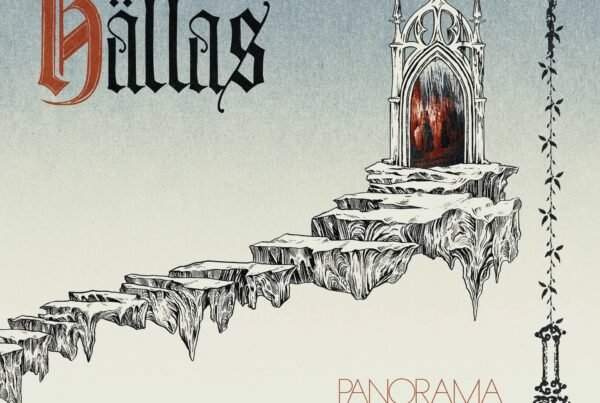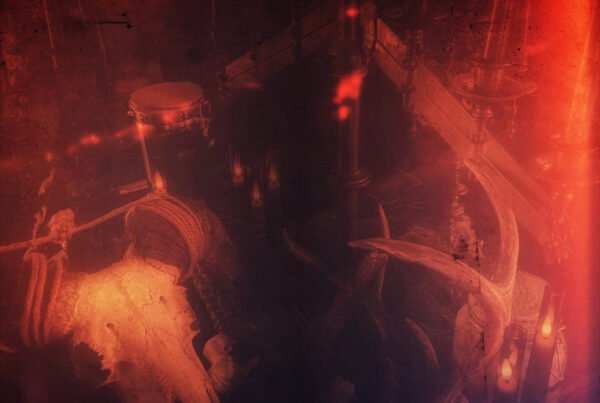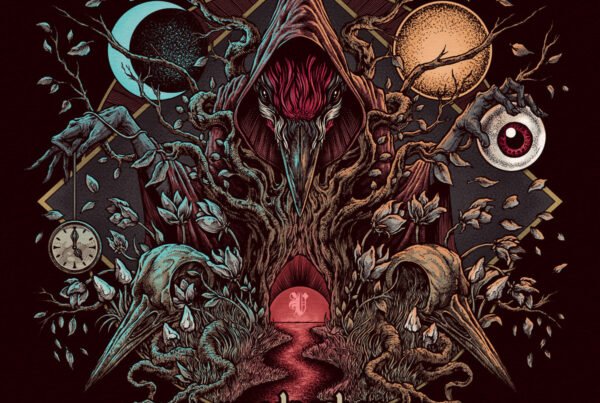Grace Cummings summons her powerful voice and lush orchestration to showcase uninhibited emotion on her stunning Ramona.
Release date: April 5, 2024 | ATO Records | Facebook | Instagram | Bandcamp
I remember taking bass lessons in high school. My instructor would happily help me learn songs that I wanted to play. One day he commented, ‘you always pick artists with the worst vocals,’ after I showed him At The Drive-In. So, I have a long history of thinking about singing quality as a secondary focus to my listening habits to atmosphere, instrumentation, etc. Metal and punk have been my mainstays for years, so I suppose this isn’t a surprise to anyone I share music with, but every once in a while, I run across a singer that cannot be ignored.
When the singer hits right, transmitting emotionality and performance in equal measure, a physical response is inevitable. My hairs stand up, goosebumps, increased heart rate, all the trappings of being awestruck by beauty. It is a rare thing that needs to be cherished. Luckily, we are alive at the same time as Grace Cummings. This Aussie folk singer has caught the attention of King Gizzard and the Lizard Wizard and rose in popularity over the last 4 years releasing 2019’s Refuge Cove and 2022’s Storm Queen. Both of those albums featured folk and folk rock instrumentation and a slightly darker atmosphere. Her voice, like something elemental that shakes your soul, at the forefront.
I first heard Cummings earlier this year while looking over the lineup for Atlanta’s Shaky Knees Festival, which I attended last year. Checking out the sub-headliners in a music fest is always a good way to find some new jams, and while I am not able to attend this year’s festival, Grace Cummings was hands down the stand out act that I wasn’t already familiar with. Listening to “The Look You Gave” in my bed one Saturday morning was more than enough to grip me. That song’s heartfelt delivery, usage of nature in her lyrics, the sad Dylan-esque harmonica was a formula that immediately put the song on repeat.
Her third full-length, Ramona, was recorded in Los Angeles with producer Jonathan Wilson whose credits include Angel Olsen, Father John Misty, and Margo Price. Wilson and additional musicians have crafted a warm world of tones and orchestration around and in support of Grace’s incredible voice, which rightly, still is the centerpiece of Ramona. Cummings sings with a depth and intensity that is truly unmatched by most any vocalist. The bellowing heft of Michael Gira, the soft coos of Joni Mitchell, the world weary rasp of Amy Winehouse, the gravitas of Nina Simone all form the pressure systems and precipitation for the Storm Queen that is Grace Cummings.
The opening piano and bass of “Something Going ‘Round” welcome the listener into the warm sounds of Ramona. Organ, a choir, and strings all appear on this lovely track as Cummings sings of love lost and the isolated emotional falling that happens therein. There is even a horn section in the climax and denouement. This bold instrumentation is repeated throughout the album, each track creating its own world, but flowing together. Nothing is jarring or out of place, but instead, feels cohesive despite the adventurousness the production takes.
The theme of resilience through solitude and against the world’s expectations dominates Ramona. The second track and lead single, “On And On” asks ‘Is this happy?/I think I’ll go on‘ over a bass and drum rhythm with more organ and horns that feels like an 80’s new wave ballad. Perhaps the least ‘folk’ arrangement on Ramona, but a standout single, nonetheless, that showcases Grace’s versatility. Elsewhere, “Work Today (And Tomorrow)” sees her voice over a classic 50’s string arrangement that would suit Billie Holiday or Frank Sinatra. On “Everybody’s Somebody” we get a powerhouse blues/soul track lets Cummings belt her voice. It is an arresting performance that would leave a barroom jaws agape in standing ovation as she channels Janis Joplin and admonishes the inaction of the lonely.
The second single, “Common Man” is another example of genre exploration. This time, she takes on a country/roots rock vibe and produces the best song about being a cowboy I have ever heard, with apologies to Marty Robbins. “Common Man” unlike many songs that are about cowboys or how the narrator should have been one, embodies the mythology of the American West’s most infamous figure, a solitary rider, confident and free. In this case, there are no tales of toughness, gunslinging, or bravado. Instead, the cowboy archetype is presented as one who has escaped society’s malaise in search of a connection to the divine, their own idea of heaven under the sun and moon. When she sings ‘I don’t need shelter now‘ it sounds like a triumph against the threat of storms – literal, emotional, and psychological. ‘I don’t need to understand any common man’ becomes the thesis of Ramona.
This choice of solitude and perseverance isn’t without pain and lamentation. On “A Precious Thing” she sings ‘Love is just a thing/that I’m trying to live without/and oh what a precious thing/but its nothing I care about‘ trying to convince herself that it is going to be ok. This is another contender for the best song on the album. It is emotionally wrecking and graceful. “Without You” laments the loss of love while “Love And The Canyon” is a song that yearns for romance. Album closer “Help Is On Its Way” offers a little hope that this too shall pass. Through the power of singing and music, we can all overcome whatever troubles belay us.
Cummings’ songwriting is a little more polished than her previous albums. She has always focused on elemental parts of nature as symbols, eagles, the sun, the moon, the wind, but here each word carries what feels like greater weight than before, With such a unique and strong voice, personally, I hope that down the road her songwriting veers a little more towards the details and metaphor of her greater influences, Bob Dylan, Joni Mitchell, Nick Cave, and Leonard Cohen. She even covered Cave’s “Straight To You.” She could get weirder with it, adding even wilder arrangements and embracing the dark balladeer persona she has flirted with. Even if she doesn’t go down that route, Ramona is a strong case for Grace Cummings as a unique and demanding voice in the greater sphere of modern folk music.
Should she continue to embrace a more indie-pop approach like that of Angel Olsen or Father John Misty, she will remain an artist I am eager to hear more from. While Ramona does flow together and feel cohesive, the different vibes that several tracks introduce, while breaking up the downfall of monotony, do detract from the album feeling like a completely unified project. She has said that the inspiration for Ramona was Bob Dylan‘s “To Ramona” which allowed her to take on a persona for her songwriting process. It can be easier to play a character and let yourself flow from performance rather than laying bare yourself as a songwriter. Yet it doesn’t seem like the songs on Ramona are all sang from the same person in the same situations. It falls just short of being a concept album which would have pushed Ramona into the ‘masterpiece’ realm. Instead, we have a great album that is a pleasure to listen to again and again.






